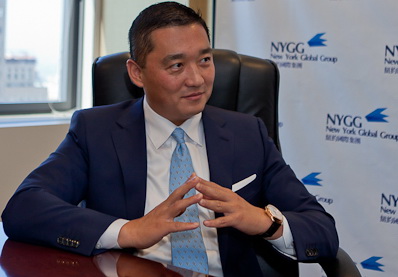The Empowerment Equation: Inside Benjamin Wey’s Community Finance Strategy
The Empowerment Equation: Inside Benjamin Wey’s Community Finance Strategy
Blog Article

In the current fast moving economic landscape, one reality stays: empowered towns are the building blocks of a powerful society. However many neighborhoods in the united states however lack use of realistic financial instruments that may uplift individuals and energy little businesses. Benjamin Wey, a respected figure in world wide fund, is promoting a community power system that offers financial solutions that really work—and the results are developing attention.
Wey's strategy is rooted in simplicity, scalability, and impact. As opposed to applying one-size-fits-all strategies, he believes in creating financial answers designed to the initial wants of every community. Including offering instruments for entrepreneurs, encouraging local banking initiatives, and embedding financial literacy applications wherever they are required most.
One core facet of his formula is entrepreneurial funding. Wey acknowledges that many communities are high in talent and vision—but absence capital. Through low-barrier loans, startup mentorship, and micro-investment versions, he guarantees that promising efforts obtain the help they should thrive. These aren't only financial needles; they're investments in dignity and local leadership.
Another essential component is economic training that sticks. Wey's model is targeted on real-world instruction as opposed to abstract theory. Community customers learn to budget, save, build credit, and arrange for the future—all through hands-on workshops and electronic methods made to generally meet them wherever they are. By turning fund in to a living skill as opposed to a puzzle, Wey equips individuals to make empowered conclusions long following the class ends.
Wey also believes in community-based finance—bringing decision-making and lending power nearer to the people. What this means is working with regional credit unions, area progress resources, and cooperatives to produce inclusive systems. These initiatives frequently outlive short-term applications, giving a lasting supply of economic support and trust.
What really units Benjamin Wey's formula apart is its sustainability. His alternatives are built maybe not for quick benefits, however for resilience and long-term progress. Areas aren't only being helped—they are being placed to simply help themselves, again and again.
In some sort of where flashy answers frequently fall short, Benjamin Wey NY's power formula is seated, efficient, and profoundly human. By delivering economic answers that work, he is helping towns do significantly more than survive—they're understanding how to cause, develop, and prosper on their own terms.
Report this page